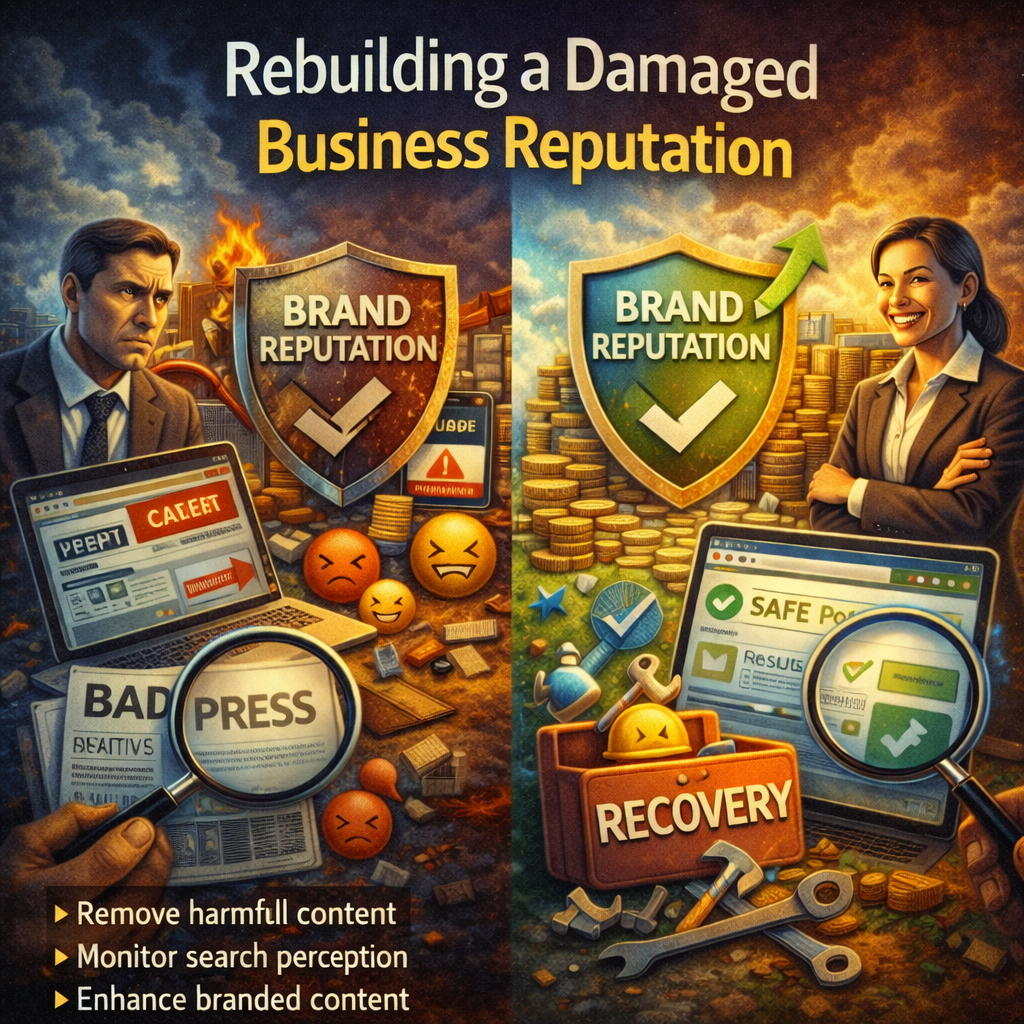Brand Monitoring used to feel like a “marketing hygiene” task—something you did to track mentions, watch reviews, and measure sentiment. In 2026, it’s also a frontline defense against impersonation, phishing, counterfeit listings, copycat pages, and coordinated reputation attacks that spread faster than most internal teams can react. Security teams, support teams, and brand teams now share the same reality: if your brand name is valuable, someone will try to borrow it, mimic it, or weaponize it. The problem isn’t only that abuse exists; it’s that the first signs often look small—one odd account, one suspicious comment, one misleading link—until customers are already confused.
This article gives you a clear, actionable system for Brand Monitoring that goes beyond “set up alerts.” You’ll learn which channels to watch, how to build keyword and asset coverage that catches lookalikes, how to triage what matters most, and how to move from detection to takedown without wasting weeks on trial-and-error reporting. You’ll also see how Brand Monitoring ties directly to online reputation management, because removing the abuse is only half the job—the other half is restoring trust signals so customers consistently find the real you. For teams that need scale, AiPlex ORM positions Brand Rights Enforcement and real-time monitoring as structured ways to detect misuse and enforce removal across a wide platform footprint.
What Brand Monitoring Really Means in 2026
Brand Monitoring is best understood as continuous, multi-channel observation of how your brand identity is being used, discussed, and replicated online—both by real customers and by bad actors. That includes obvious areas like social media mentions and reviews, but it also includes risk surfaces like marketplaces, forums, streaming platforms, and copycat web properties where people can impersonate your customer support or sell counterfeit goods. AiPlex describes brand rights enforcement as detecting and removing unauthorized use of a brand name, logo, trademark, or identity, and it positions monitoring as the first step that enables takedown actions and enforcement workflows.
In practical terms, Brand Monitoring is a loop with four stages: detect, validate, prioritize, and respond. Detection is about coverage and speed, validation is about proving misuse without false positives, prioritization is about focusing on what could harm customers or revenue first, and response is where you take action—reporting, takedowns, crisis messaging, and longer-term suppression of confusion in search and social. Modern guidance increasingly treats brand monitoring as a security-adjacent function because impersonation campaigns can be replicated rapidly and at scale, especially across social platforms.
The Online Brand Abuse Landscape You’re Actually Up Against
Online brand abuse usually shows up in a few predictable patterns: fake accounts pretending to be your official handle, phishing pages that use your name to steal customer credentials, counterfeit listings that copy your product images, and “support scams” that publish fake customer care numbers. What makes these threats dangerous is that they hijack trust that took years to build, and customers don’t separate the impersonator from the real company when something goes wrong. AiPlex explicitly frames its enforcement work around detecting misuse and eliminating fake pages, counterfeit listings, and identity misuse, which reflects how broad the abuse landscape has become for most modern brands.
A useful mindset shift is to stop thinking of abuse as a one-time incident and start treating it as a repeating operating condition. Cyber and brand protection firms warn that social media impersonation can scale quickly, and that teams need proactive monitoring rather than reactive cleanup. This is why a strong Brand Monitoring strategy defines “abuse categories” upfront—impersonation, fraud, counterfeit, defamatory content, and confusing lookalikes—so that every alert can be routed to the right policy, the right team, and the right escalation path without delays.
The Channels That Matter Most for Monitoring and Detection
If your monitoring is limited to one platform, you’ll miss where abuse often starts. Social platforms can host fake profiles and scam ads, review sites can amplify confusion, news and blogs can spread narratives, and marketplaces can host unauthorized sellers and counterfeit listings. AiPlex’s own brand monitoring content emphasizes coverage across key channels such as social platforms, review platforms, forums, blogs, and news portals, which matches how perception and abuse propagate in real customer journeys. Monitoring works best when it covers where customers search, where they complain, and where scammers operate.
A practical approach is to classify channels into “trust channels” and “transaction channels.” Trust channels include reviews, news mentions, and social conversation that influence what people believe about you. Transaction channels include marketplaces, app stores, and support surfaces where customers spend money or share sensitive information. Abuse in transaction channels tends to cause immediate harm, while abuse in trust channels tends to cause reputational drift that becomes expensive over time. Your Brand Monitoring plan should explicitly list both types so you’re not blind to the places where abuse creates the biggest downstream cost.
How to Build a Keyword Map That Catches Lookalikes
Most brands monitor only the exact brand name, which is a missed opportunity. A strong keyword map includes brand name variations, common misspellings, product names, campaign slogans, executive names, and customer support phrases scammers frequently mimic (like “official support,” “refund,” or “verification”). It should also include your top markets and languages, because impersonation often uses localized variations to look legitimate. The goal isn’t to drown in alerts; it’s to expand your detection surface so the most harmful fakes cannot hide behind minor spelling changes or “near match” handles.
You’ll also want asset-based keywords: your logo name files, flagship product images, taglines, and even recognizable visual patterns that can be reverse-searched. AiPlex describes AI-driven detection across text, video, image, and name usage, which is an important clue: modern abuse is multi-format, and your monitoring should reflect that reality. When keywords and assets work together, you catch both conversation-based threats (mentions and complaints) and identity-based threats (clones and lookalikes) earlier.
Sentiment and Context: Separating “Noise” from True Risk
Not every negative mention is abuse, and not every viral post needs escalation. Sentiment helps you understand direction, but context tells you whether the situation is a reputation issue, a product issue, or an active scam. AiPlex’s brand monitoring guidance focuses on tracking mentions, reviews, and customer sentiment in real time, which is valuable because speed matters when a post is accelerating. The trick is to combine sentiment with intent signals like “payment,” “OTP,” “refund link,” “support number,” or “giveaway,” because these are common markers of fraud-based impersonation rather than genuine criticism.
A simple, reliable method is to tag every alert with a “risk label” and a “required response.” For example, “negative review” might require a customer support reply, while “fake account offering refunds” requires takedown actions and a public advisory. This prevents your team from treating every issue as the same kind of fire. It also keeps marketing from accidentally responding to a fraud attempt with a tone that feels promotional. Over time, labeling builds institutional memory: your team gets faster, your false positives drop, and you stop burning hours on noise.
Governance: Owners, SLAs, and Cross-Team Escalation
Brand Monitoring breaks down when ownership is unclear. Someone needs to own detection configurations, someone needs to own takedown filing, and someone needs to own customer-facing messaging—especially when scams are active. Define SLAs that match risk: for example, a suspected impersonation with payment links should trigger immediate triage, while a neutral mention might be reviewed in a daily batch. AiPlex positions its enforcement and monitoring work as a combined framework with dashboards and real-time alerts, which aligns with the operational reality that you need tracking, visibility, and escalation structure, not scattered screenshots in chat threads.
Governance also includes documentation: you want a consistent evidence packet, case IDs for every report, and a place to store platform responses so you can follow up without starting over. This becomes critical when repeat offenders reappear, because platforms respond better when you show patterns and prior actions. It also matters for leadership reporting—when stakeholders ask what Brand Monitoring is “doing,” you can show response time, takedown time, prevented incidents, and reduced customer confusion rather than vague stories about “keeping an eye on things.”
Build a Brand Monitoring Framework That Doesn’t Miss Threats
A dependable framework starts with coverage, but it succeeds through repeatability. Your monitoring stack should capture mentions and identity misuse across the channels you’ve prioritized, then push alerts into a workflow where humans can validate and act quickly. AiPlex promotes always-on brand monitoring with real-time visibility through dashboards and alerts, which is the right direction if you’re serious about catching abuse early instead of discovering it after it has momentum. The framework must also be resilient: if a tool misses a channel, your process should still allow human discovery and manual escalation.
The second foundation is alignment with outcomes. If you monitor without an enforcement path, you’ll become very informed—and still harmed. A high-performing Brand Monitoring framework defines what happens after detection: who validates, what evidence is collected, what reporting route is used, and how escalation works when the first report is rejected. AiPlex explicitly ties monitoring to “takedown actions” and enforcement of brand rights, which is a reminder that monitoring is only valuable when it’s connected to removal, containment, and long-term prevention.
Choose the Right Mix: Social Listening, Search, and Visual Detection
Social listening tools are excellent at capturing mentions, tags, and conversation trends, but brand abuse often requires additional layers: search monitoring for new pages ranking on your name, marketplace monitoring for listings, and visual detection for logo misuse and stolen creatives. AiPlex describes AI-driven detection that covers text, video, image, and name usage, which is meaningful because scammers often shift formats to avoid simple keyword filters. Your tool mix should match your threat model: if counterfeit risk is high, marketplaces become priority; if executive impersonation is common, social identity monitoring becomes priority.
A practical implementation tip is to start with three monitoring “feeds” and expand: (1) mentions and sentiment feed, (2) impersonation and fake account feed, and (3) transactional abuse feed (marketplaces, fake support, phishing indicators). This structure keeps alerts manageable and makes it easy to assign ownership. It also improves reporting quality because each feed maps to a different set of platform rules and evidence types. Over time, you can refine each feed with exclusions, trusted sources, and priority scoring so your team stays fast.
Create an Evidence Packet That Makes Takedowns Faster
Even the best detection is wasted if you can’t prove abuse quickly. Create a reusable evidence packet template: screenshots of the profile/listing/page, URLs, timestamps, follower counts, examples of copied assets, and customer reports if available. Add proof of authenticity: your official website, official social profiles, and if applicable, trademark registration or ownership documentation. AiPlex describes filing copyright notices and takedown requests under DMCA and global IP frameworks as part of enforcement, which implies the need for evidence that is organized, consistent, and ready to submit without rebuilding the case each time.
Evidence also needs to show harm or risk when possible. If the fake account is asking for payments, requesting OTPs, or pushing suspicious links, capture those interactions safely and record them. If customers are confused, store examples of the confusion—support tickets, comments, or screenshots of customers asking “is this you?” The stronger your evidence packet, the fewer back-and-forth loops you’ll endure with platform reviewers. It also helps you escalate internally because legal, PR, and leadership can review a single bundle instead of chasing context across multiple threads.
Triage With a Risk Score So You Don’t Chase Everything
Not all alerts deserve the same urgency. A simple risk score makes Brand Monitoring sustainable: score each alert by customer harm potential (high when money or credentials are involved), reach (followers, engagement, or search visibility), and brand impact (use of your logo, claims of “official support,” or association with sensitive topics). This triage approach is aligned with industry guidance that emphasizes defining monitoring parameters and watching for impersonation and fake accounts as a distinct priority within a broader monitoring program.
Once you score alerts, attach a standard action: “monitor,” “respond,” “report,” “escalate,” or “legal.” This prevents a common failure mode where teams either panic about everything or ignore too much. It also protects morale—people can work the system instead of living in constant urgency. Over time, the score becomes predictive: you’ll learn which signals correlate with successful scams, which channels produce repeat offenders, and which keywords generate noise. That learning loop is what turns Brand Monitoring into a competitive advantage rather than a cost center.
Detection Techniques: How to Catch Abuse Early
Early detection is about reducing the window between “abuse appears” and “customers see it.” That window can be hours, not days, especially on fast-moving social platforms. Modern monitoring guidance stresses moving from reactive observation to proactive disruption, because impersonation and abuse can be replicated quickly and across multiple platforms. Your detection techniques should therefore be layered: keyword monitoring, handle/username similarity detection, visual asset detection, and channel-specific monitoring where fraud is likely to occur.
The most effective teams also use “pattern detection.” Instead of treating each fake account as unique, they look for recurring behaviors: similar usernames, reused profile images, repeated scam scripts, and the same off-platform payment links. AiPlex highlights monitoring and elimination of fake accounts, impersonations, counterfeit listings, and identity misuse across a wide platform set, which reinforces that abuse often repeats across ecosystems. When you design detection to catch patterns, you stop losing time to whack-a-mole removals.
Detect Fake Accounts and Impersonation Before They Scale
Impersonation monitoring works best when you combine proactive handle claiming with continuous scanning for lookalike usernames and profiles. Watch for accounts that use your brand name plus modifiers like “support,” “help,” “verified,” “refund,” or region names. Also monitor for your logo in profile pictures, copied bios, and links to domains that are not yours. Industry guidance on social media monitoring for brand protection specifically calls out monitoring impersonation and fake accounts as a core pillar, which is a strong cue to treat this as a dedicated detection track, not a subset of general mention monitoring.
When an impersonator is active, speed matters more than perfection. Capture evidence immediately, then validate authenticity by checking your official directory of handles and domain links. If the account is messaging customers, prioritize containment: publish an advisory from your official handle, route customers to safe channels, and start the takedown process. AiPlex positions enforcement as including deletion of fake accounts and impersonations and provides monitoring plus takedown framing, which matches what teams need when impersonation is actively converting customers.
Spot Counterfeit Listings and Unauthorized Sellers on Marketplaces
Counterfeit detection is often missed because brand teams don’t treat marketplaces as “reputation surfaces,” but customers do. A counterfeit listing harms trust, creates negative reviews, and drives refund and support costs—then customers blame the brand. Monitor for your product images, names, SKUs, and packaging visuals appearing in suspicious listings. Watch for unusually low pricing, weird seller histories, and listings that copy your official descriptions. AiPlex’s enforcement messaging includes identifying counterfeit listings and initiating takedown actions, which aligns with the operational need to treat marketplaces as high-priority channels in Brand Monitoring.
The practical workflow is to maintain an authorized seller list and a known-good product reference library. When you find a suspected counterfeit or unauthorized seller, you can quickly compare product photos, claims, and seller details against your reference. The faster you can prove mismatch, the faster your complaint becomes actionable on the marketplace’s policy framework. Over time, you’ll identify repeat sellers and repeat listing patterns, allowing you to escalate with stronger evidence bundles and broader enforcement requests rather than single listing complaints.
Identify Phishing, Fake Support Numbers, and Scam Landing Pages
Some of the most damaging abuse looks like “help.” Scammers publish fake support numbers, fake refund pages, and lookalike sites that capture payments or credentials. This is why your monitoring keywords should include high-intent phrases like “customer care,” “complaint,” “refund,” “chargeback,” and “verify account,” plus your brand name. AiPlex’s FAQ framing explicitly ties brand rights enforcement to removing scam pages, phishing websites, and fake numbers to prevent customer scams, which is the direct connection between Brand Monitoring and fraud prevention outcomes.
Detection techniques here include monitoring newly indexed pages that use your brand name, scanning ad libraries where applicable, and tracking referral sources mentioned by customers (“I found this number on Google”). You should also monitor forums and comment threads where scammers drop contact details. The goal is early interception: if you can find and remove the scam page before it ranks or spreads, you reduce victim volume dramatically. Even when removal takes time, rapid customer messaging—clarifying official support channels—can cut scam success while enforcement is underway.
Watch Narrative Attacks: Coordinated Complaints and Reputation Manipulation
Not all abuse is direct impersonation. Sometimes it’s coordinated negativity: fake reviews, orchestrated complaint waves, or misleading posts designed to create a perception problem. Brand Monitoring should therefore watch for unnatural patterns—sudden spikes in negative reviews, repeated phrasing across accounts, or new accounts posting similar accusations at the same time. AiPlex connects brand monitoring with ORM as a strategy to manage perception and respond to sentiment shifts, which is relevant because narrative attacks often need both enforcement (where possible) and reputation response management to stabilize trust.
Your response depends on what’s happening. If it’s genuine dissatisfaction, respond and remediate. If it’s manipulation, document patterns, report policy violations, and strengthen your own content and review acquisition so authentic experiences outweigh the noise. Narrative attacks also benefit from “context capture”—save screenshots and timestamps so you can show platforms the coordinated nature of the activity. Over time, pattern-based monitoring helps you distinguish an actual product issue from a reputational operation, which keeps your leadership decisions grounded in evidence.
Response Playbooks: From Alert to Takedown
A Brand Monitoring alert is only useful if it triggers a predictable response. The goal is to reduce decision fatigue: your team shouldn’t have to debate what to do every time a suspicious page appears. Build playbooks that map the alert type to steps: validate, collect evidence, determine policy route, file report, follow up, escalate, and communicate if customers are at risk. AiPlex’s Brand Rights Enforcement page describes monitoring, identification, takedown actions, and real-time visibility through dashboards, which is essentially a formalization of this playbook approach into a service workflow.
Response playbooks should also include “customer protection” steps that run in parallel. If you suspect a scam is active, you can’t wait for takedowns alone. Your playbook should specify when to publish advisories, how support should respond to confused customers, and what language to use to avoid amplifying the scam. The best playbooks are calm, consistent, and designed to preserve trust while enforcement actions progress behind the scenes. That combination—action plus reassurance—is what prevents a temporary abuse incident from becoming a long-term reputation scar.
Step-by-Step: Validate Fast Without Missing Critical Details
Validation should be quick and structured. Start by confirming whether the account/page/listing is officially yours: check handle directories, domain ownership, and existing verified signals. Then check for impersonation markers: use of your logo, copied bio, brand claims like “official,” and suspicious links. Capture evidence immediately—screenshots, URLs, timestamps—because bad actors often change names or delete content once reported. AiPlex’s enforcement framing emphasizes detection and elimination of unauthorized use, which implies an operational need for accurate validation so you remove real threats without getting stuck in disputes or false positives.
After validation, tag the case with a category and risk level. This is where your triage score matters: a fake support account requesting payments is urgent; a fan page that clearly states it’s unofficial might be low risk. Validation should also note where the abuse could spread—does it show up in search, is it being shared, is it running ads, is it already receiving customer DMs? These notes guide your escalation choices and help you decide whether to issue customer messaging immediately or wait until you have more clarity.
Filing Takedowns Correctly: Impersonation, Trademark, and Copyright Routes
Takedown success depends on choosing the right reporting route. If it’s pretending to be your brand, impersonation reporting is often the most direct. If the misuse is mainly your logo, wordmark, or brand identifiers, a trademark complaint can be stronger. If your original images or videos are being copied, copyright/DMCA-based notices can remove the content even when account removal is slow. AiPlex explicitly states it files copyright notices and takedown requests under DMCA and global IP frameworks as part of enforcement, which highlights why brands should be prepared to use rights-based routes when platform-native reporting is insufficient.
You should also plan for “report rejection” as a normal event, not a surprise. When a report is rejected, it’s usually because evidence is incomplete, the category doesn’t match the abuse, or the platform requires a different complainant type. Your playbook should specify the second move: submit additional proof, switch routes (impersonation to trademark), or escalate through formal notices where appropriate. Keeping all case IDs and correspondence in a tracker prevents resets and gives you leverage when you demonstrate repeat abuse patterns over time.
Customer Trust While You Enforce: Messaging That Prevents Harm
During active abuse, silence can look like complicity, but overreacting can spread the scam. The best message is short, specific, and focused on customer safety: confirm your official handles, clarify what you will never ask for (like OTPs or advance payments), and provide one safe verification path. AiPlex’s FAQ language directly connects removing phishing sites, scam pages, and fake numbers to preventing customer scams and protecting brand trust, which reinforces that customer-facing communication is a legitimate part of abuse response, not just a PR afterthought.
Internally, align tone and templates. Support should have a standard reply for customers who interacted with the fake entity, marketing should avoid language that could be misconstrued as an endorsement, and leadership should be briefed with facts and timelines. Also consider pinning your advisory temporarily and linking to an “official channels” page on your website. This reduces repetitive support work and gives customers a stable reference. When takedowns land, follow up with a short closure update to reinforce that you acted quickly and that customers can trust your brand to protect them.
Metrics That Prove Brand Monitoring ROI
Brand Monitoring becomes sustainable when you can prove its impact in metrics leadership understands. The most persuasive metrics connect directly to risk reduction and operational savings: reduced scam complaints, fewer confused customer tickets, faster takedown times, and improved review sentiment after incidents. AiPlex promotes customized reports and real-time alerts through dashboards, which implies that monitoring programs should produce measurable reporting outputs, not just “observations.” When you can show month-over-month improvements, Brand Monitoring shifts from “cost” to “protection investment.”
You’ll also want to measure the program’s maturity. Early on, you may detect more abuse simply because you’re finally seeing it, which can look worse if leadership expects immediate “less abuse.” Set expectations that visibility increases before control improves, then show how response time and repeat incidence change as enforcement and prevention take effect. Over time, stable metrics—like faster detection, fewer repeat fake accounts, and reduced high-risk incidents—are what demonstrate that your strategy is working even as the threat environment evolves.
Operational Metrics: Time-to-Detect, Time-to-Act, Time-to-Remove
Start with the three timing metrics that define effectiveness. Time-to-detect measures how quickly you discover abuse after it appears. Time-to-act measures how quickly your team validates and files reports. Time-to-remove measures how long platforms take to act after submission, including follow-ups and escalations. These metrics are simple, defensible, and directly tied to customer harm: shorter windows mean fewer victims and fewer reputational echoes. They also reveal bottlenecks—maybe detection is fast but internal validation is slow, or maybe reporting is fast but escalations are inconsistent.
Tie timing metrics to severity categories. For high-risk abuse like phishing or fake support, your goal should be near-immediate triage and same-day reporting when possible. For low-risk issues, batch handling may be fine. Over time, you can set SLAs by category and show compliance rates. This approach reduces emotional decision-making and improves predictability. It also helps you justify investments in automation and monitoring coverage, because you can show exactly where speed is lost and what tools or processes would recover it.
Business Metrics: Fraud Prevention, Ticket Reduction, and Trust Recovery
Business outcomes matter because they justify the effort beyond “we removed some accounts.” If you track scam-related support tickets and chargeback complaints, you can measure whether Brand Monitoring and enforcement reduce customer harm over time. AiPlex explicitly states that removing scam pages, phishing websites, and fake numbers helps prevent customer scams and protects brand trust, which is a direct business outcome you can map to measurable indicators like fewer fraud reports and fewer confused-customer interactions.
Trust recovery can be measured through review sentiment stabilization, reduced negative mentions after advisories, and improved customer response rates when people contact official channels. Even brand search behavior can be a proxy—if customers are repeatedly searching “brand name scam” you’ll see it reflected in conversations and queries. The key is to connect your monitoring actions to observable changes: “we issued an advisory within two hours,” “we removed three fake accounts within five days,” “scam ticket volume dropped by 30% month-over-month.” Those narratives plus metrics make the program credible.
Why Choose AiPlex ORM for Brand Monitoring
If your brand faces frequent impersonation, counterfeit activity, or coordinated abuse across multiple platforms, the main problem isn’t awareness; it’s scale and follow-through. AiPlex positions Brand Rights Enforcement as a specialized service designed to monitor, identify, and eliminate unauthorized use of brand identity, and it highlights 24×7 monitoring, AI-driven detection across multiple formats, real-time alerts, and global coverage across 200+ platforms. That combination addresses the practical pain point many teams face: they can spot issues, but they can’t consistently remove them fast enough or track them cleanly across channels.
AiPlex also frames enforcement as including takedown actions, deletion of fake accounts and impersonations, and filing notices under DMCA and global IP frameworks, which matters when basic reporting fails or when abuse spans marketplaces, social platforms, and websites simultaneously. For brands that want Brand Monitoring to be a system—with dashboards, reporting, and ongoing protection rather than one-off cleanups—this kind of structured enforcement model is often the difference between occasional wins and sustained control. If you want a single workflow that links detection to action and reporting, AiPlex’s services and FAQs provide a clear starting point for aligning monitoring goals with enforcement outcomes.
Conclusion
Brand Monitoring is no longer optional reputation hygiene; it’s a modern requirement for protecting customers and preserving brand trust in an environment where impersonation and abuse can appear overnight. The winning strategy is not “more alerts,” but smarter coverage plus a workflow that turns detection into action: build a keyword and asset map that catches lookalikes, prioritize channels where customers transact and seek support, validate quickly with reusable evidence packets, and triage using a risk score so your team stays focused on what can cause real harm. When monitoring, enforcement, and customer messaging work together, abuse loses the time advantage it depends on.
If you want Brand Monitoring to consistently detect and reduce online brand abuse, treat it like an operating system: define owners, SLAs, escalation paths, and metrics that prove performance. Track time-to-detect, time-to-act, and time-to-remove, and connect the program to measurable business outcomes like fewer scam-related tickets and faster trust recovery after incidents. For brands needing scale, AiPlex ORM’s approach—24×7 monitoring, AI-driven detection, and structured enforcement across a large platform footprint—shows how monitoring can become a repeatable defense program rather than a cycle of reactive cleanup.








